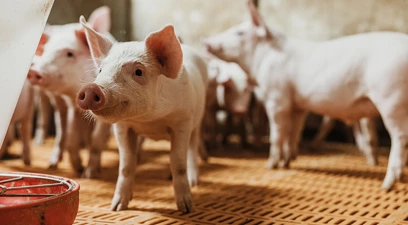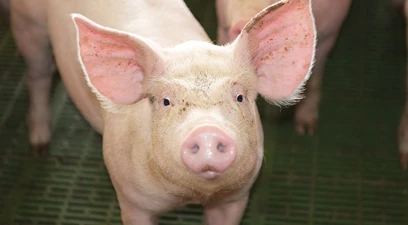The sow’s microbiome: key to pig health, immunity and performance
Published: 07 August 2024
The loss of zinc oxide as a tool against digestive disorders has left many farmers concerned about how to manage pig health into the future. Managing the sow’s gut microbiome can help piglets maintain performance and health throughout their life, even through periods of challenge...
The gastrointestinal tract of pigs is home to a dynamic ecosystem of microbes with a substantial impact on pig health and nutrition due to their digestion of complex carbohydrates and producing metabolites that aid physiological and immunological function. Simply put, in the face of challenges like the loss of zinc oxide, management of the microbiome will play an important role in ensuring efficient, profitable and sustainable pig production from birth to bacon.
“To produce robust and profitable pigs, we need to ensure everything is right with the sow first,” says Georgina Phillips, pig specialist at Phileo UK & Ireland. “The state of her gut microbiome is critical to the success of her piglets throughout their lifetime. A healthy gut allows her to cope with challenges, better utilise feed, support unborn piglets, develop mammary tissue and produce good quality colostrum and milk post-farrowing. The fibrolytic bacteria in her large intestine are responsible for digesting fibre into volatile fatty acids that supply up to 30% of her feed requirements.”
Ensuring correct nutrition and adapting feed management during gestation and lactation is key to achieving optimal performance in the farrowing house.
“Strategies like increasing feed intervals and supplementing with a live yeast like Actisaf® Sc 47 can help gut microbiota adapt to dietary changes throughout gestation and into lactation,” she continues. “This can ensure thorough digestion and avoid issues like constipation, prolonged farrowing, high rates of still births and poor piglet vitality.”
A healthy, effective gut microbiome means a healthy, well-nourished sow that can provide plenty of high-quality colostrum, getting piglets off to the best possible start. She also will be able to extract adequate energy from feed for her own maintenance, reducing demand on her fat reserves throughout lactation. This allows her to maintain condition, which is imperative for a successful return to oestrus in the next cycle.
“The sow’s gut microbiome is important to the health of piglets beyond nutrition and colostrum production. She transfers her own microbiota to her litter through contact with the vagina canal, sow faecal matter and even colostrum itself, and this will ultimately determine the adult pig’s microbiome and influence lifetime performance.”
With approximately 70% of immune cells originating in the gut, a well-developed digestive tract also equips the piglet with a robust innate immune system, giving them a fighting chance to overcome any encountered pathogenic disease at weaning and beyond.
Additionally, a thriving community of ‘beneficial’ microbes will out-compete enteric pathogens and make is harder for them to establish. This reduces the chance of them attaching to the epithelial lining and subsequent negative impacts on gut morphology (like villus atrophy or ‘leaky gut’), which can reduce immune function and lead to greater susceptibility to other ailments.
“Additionally, by maintaining gut integrity and morphology, we can further ensure the piglet’s capacity for efficient nutrient absorption, which is after all the basis for successful growth throughout the pig production period,” adds Georgina.
The microbiome is also known to be linked to emotional health via the gut-brain axis, and various microbial metabolites are thought to be precursors for neurotransmitters and hormones like serotonin that affect behaviour. While this is still an emerging area of research, it poses significant welfare implications that also affect performance, especially regarding behaviours like tail biting that can cause serious injury and require costly veterinary intervention.
“The significance of the gut microbiome in pig health cannot be denied, and targeted strategies to manipulate a beneficial microflora will be crucial moving forward if we want a profitable, productive and sustainable pig industry,” she concludes.
Related Tech Info

The gastrointestinal tract plays a key role along the multitude of factors that determine pig health within every production ...

A trial in the Republic of Ireland found that piglets supplemented with Actisaf® live yeast and Safmannan® premium yeast frac...
